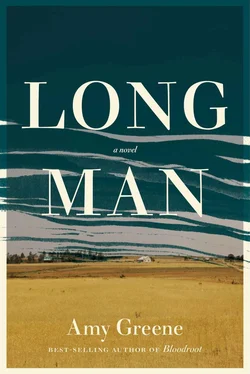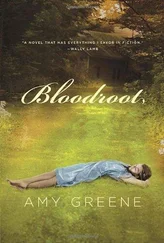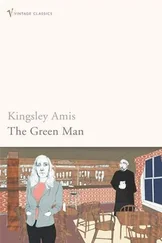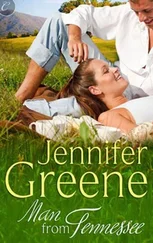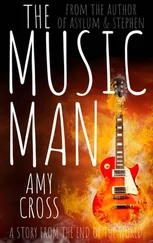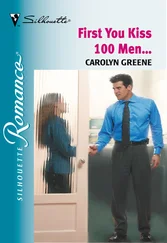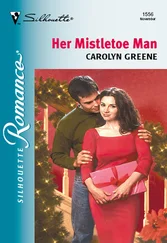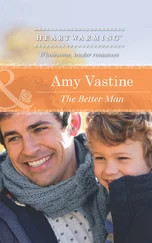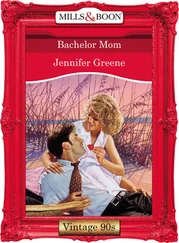It had been given to Beulah to know and she had done her duty. When she died, she wanted the Lord to say well done. But she hoped for a little more time. As many burdensome things as she had witnessed, there had been many more things of beauty. She would like to sit again in her yard watching the leaves turn colors. She would like to raise a few more goats. She would like to eat more apple butter. She would like to see another Easter flower pushing up from the early springtime ground. She would like to wipe the afterbirth from one more living baby.
It was the rain and lack of sleep that turned her thoughts woeful. When her aching joints wouldn’t let her lie still she sometimes went wandering in the dark. Last night she’d walked under the dripping limbs of the hollow woods all the way to Hardin Bluff School, moldering now with its benches overturned, its blackboard coming unanchored from the wall. The schoolhouse was built high out of reach after the first one washed down the river in the flood of 1904. Before it was closed, students came up from their houses in the valley or walked from the narrow hillsides their fathers farmed until they got tired of hauling their corn down the ridges to market and moved off to work at the rayon plant in Whitehall County. Some who graduated from Hardin Bluff School had left town and gone on to make names for themselves. In Nashville there was a state senator growing old in a mansion grander than anything he must have imagined while staring out the schoolhouse window. There was a well-known baseball player who was said to have carved his initials into one of the schoolroom benches. Most of the rest settled in Yuneetah but others died in wars and bar fights and logging accidents. Since this past spring when the last class was dismissed, the schoolhouse had stood empty. Much like seven years ago, when half the town headed north. Back then Beulah could have walked down the road and seen near as many deserted homesteads as she did today. But when the factories started closing up there they came back, and the land had deteriorated even more after those who couldn’t make it in the cities returned to their hillsides to farm again. Yuneetah had been declining for a long time. These days Beulah wondered what would finish it off first, the power company or the weather.
According to Beulah’s mother, Yuneetah had gone downhill farther back. She claimed this part of the country never recovered from the Civil War. The men of these mountains were as likely to fight on the Union side as the Confederate since they couldn’t afford to own slaves. When the war was over they were even poorer. She said that’s why there were so many believers around here. God was all they had left in the end. But before the Civil War, a clan of Beulah’s kin descended from those who came across the ocean had lodged between the wooded ridges of the mountains surrounding the farmland below, a wedge-shaped notch barely flat enough to build on, isolated from the rest of Yuneetah by two sheer rock walls. The bottomland had been claimed by the English, leaving the latecomers and the poor to settle the highlands. They trapped for hides and shot deer for venison and raised cabins smelling of raw timber. Sometimes when Beulah sat in her yard it seemed she could scent the smoke of their hearth fires, could hear the notes of their ballads about lovers left on distant shores. After the war, the first of them had gone down to the valley as a child bride and married a farmer. Soon others had moved closer to the road, a dirt trail weaving its way between the hills. Over the decades their abandoned barns and shacks had fallen in and lay decomposing under piles of mossy shingles. Beulah often came upon the ruins on her walks, the creeper-hung chimneys of their forgotten homesteads. They had gone and built sturdier houses below, living as close to the road as they could get. Before they blamed all their hardship on the mountain’s rockiness, until they came down to the valley and saw the floods. That’s when they first started moving out of town, into the big cities and up into the north.
By the time Beulah was born, most of her kin were gone from the hollow, besides a handful of distant cousins. Beulah and her mother had lived alone in the cabin. Her mother was a midwife and Beulah’s first memory was of being strapped to her back on the way to a birthing, rocked to sleep by the gait of their white jenny mule. After the mule died of old age Beulah and her mother walked everywhere. They had the blacksmith to build them a cart for peddling the medicines they made. When Beulah’s feet got sore, she rode in the cart. Sometimes they slept in open fields under the moon. When they got tired of traveling they put the cart away for a while and took up lace tatting, connecting knots and loops into doilies, dress collars and curtains. Beulah still had her mother’s shuttle, an oval piece of ivory with a hook on one end. They spent many peaceful years together gardening, canning and doing the wash. Then one morning without warning, Beulah found her mother lying under the sassafras tree near the cabin. She must have been gathering the bark and leaves she used to soothe laboring women. Her eyes were not closed but Beulah could tell they saw nothing, at least in this world. She knelt to touch the tasseled end of her mother’s long braid to her lips. Then she bent to kiss her mother’s toes, remembering them sunk in garden soil and spread in riverbank silt as she cast her seining net.
Now Beulah was alone in the hollow besides Silver Ledford who seldom came down from her shack near the mountaintop and Sheriff Ellard Moody who sometimes came back home to sleep in the loft of the frame house where he grew up. As the town emptied little by little, she had seen more and more of the power company men. Last summer she had walked down the hollow to bring the Willets a bottle of the liniment she made for arthritis and met one of the men headed back to his car dressed in a pin-striped suit. His eyes had passed over Beulah like she was nothing. When she got to the porch the Willets had been sitting there crying. She’d asked what was wrong and Bud couldn’t talk, looking bewildered with his swollen hands hanging between his knees. “I tried to tell him we can’t go yet,” Fay had said. “I keep dreaming about crossing the river, Beulah. You know as well as I do what that means. If one of us is fixing to pass on, I want it to be in our own house.” Fay had dabbed at her eyes, struggling to get the rest of it out. “He said that ain’t nothing but superstition. Said it’s unchristian.” Beulah had been holding her temper, but when she heard that word she tried to catch up with the power company man. She had gone halfway down the track waving her walking stick. She’d wanted to ask him who he thought he was, talking to the Willets that way. She’d wanted to ask him what he knew about the state of their souls. He had a job to do but passing judgment wasn’t part of his business in Yuneetah. Unchristian was the worst thing he could have called Bud and Fay. “I’ll guarantee they know the Lord a whole lot better than you do, feller!” she had shouted toward the road, even though the man was gone.
Beulah had tried to be tolerant of these outsiders, reasoning that they had different ideas about religion in the cities some of them came from. They didn’t understand what faith meant in Yuneetah. Without something bigger than themselves to lean on, the people might not survive their losses. Bud and Fay Willet turned to the land rather than books to decipher the Lord’s plans for them. They couldn’t read the Bible but they could read signs and omens. They knew how to take the burn out of fire and plant by the phases of the moon. They ate black-eyed peas on New Year’s Eve and carried buckeyes in their pockets to ward off evil. Their ancestors had brought such teachings across the water alongside the Scriptures. It was how they were raised and they’d never been called on to defend themselves or their ways before the dam was built. If Beulah was fifty years younger she might have tried to comfort Bud and Fay, but being their age she knew there was nothing she could say. It was the old she felt for most. The river had formed them, as sure as it had the land. The young might be able to take other shapes but not her or the Willets. They were already mapped and carved out. There was no more give to them, worn stiff as hanks of rawhide. It might be hard to love a place that had used them up, but it was what they knew. They set even greater store by signs and omens with everything familiar to them falling away.
Читать дальше
